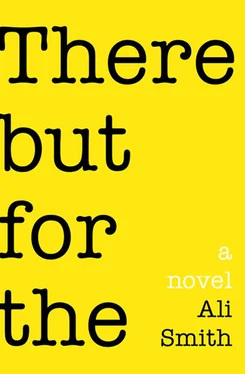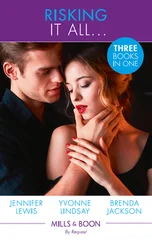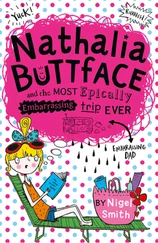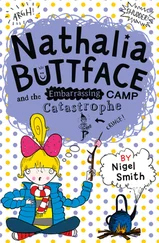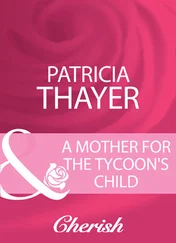Yeah, and after they did, they found out that their skulls were, like, encrusted with diamonds, and then the lights in the room they were in went on and then off by themselves, Hannah says and makes a spooky ghost noise.
Mark, shaken, realizes he has just made the terrible mistake of not just seeming to be but actually being sincere. It finally strikes him that this conversation about art probably takes place every time these people meet for dinner like this. As if to consolidate what he’s just thought, Jen makes a little performance of checking that the child is asleep before she leans forward and says with deliberate sincerity:
But of course you must have seen some terrible times yourself, Mark, if you were gay before it was legal to be gay, were you?
Oh yes, I was, Mark says. I was gay all along.
He blushes.
Yes, and it was criminal, wasn’t it, right up until the beginning of the 1970s, Jen says nodding.
End of the 1960s, Mark says and looks down at his own hands on the table.
I mean, you must have been quite a young man when all that was going on, Jen says in her sincere voice.
Oh, I was, Mark says. It’s exactly what I was.
Everybody laughs.
It must have been terrible for you, Mark, Caroline says on the other side of him.
She puts a hand on his arm.
What was it like? she says.
Oh, it was all very jolly, Mark says. We all hid everything. All very exciting. Very stimulating.
I didn’t know it was ever even criminal! Hannah says.
If they caught you it was prison. Or oestrogen injections, Terence says. That’s what happened to Turing.
It’s called cruising, not touring, Richard says, as far as I know, that is. I don’t know. We’d have to ask the experts among us. Eh, Hughie-boy?
Caroline cuts in quickly and asks the Bayoudes did they call their daughter after the actress Brooke Shields.
Who’s Brooke Shields? Hannah says.
You’re too young to know, Jen says. She was an actress who went out with, what’s his name, the royal, not Edward, the Fergie one, Prince Andrew, but when she was very young, much younger, she was associated with a seedy scandal when a rather dreadful filmmaker used her in a salacious film even though she was under-age.
It wasn’t a rather dreadful filmmaker, Eric says. It was by one of France’s best twentieth-century film directors.
Well, we’ve always disagreed on that, haven’t we, darling? Jen says. He’s always putting on things with subtitles. I look at it, and I think, oh no, sub titles. It’s lucky we can all sit in different rooms in this house.
And no, the Bayoudes tell them, but they did name her after a film star, Louise Brooks, a star of silent film—
Who did Yorkshire clog dancing, we know, Hannah says—
— who was associated with playing roles full of free will, girls with an ability to survive, or with a profound nonchalance in the face of the horribleness that life can throw at a person, Bernice says.
After a brief astonished silence, Caroline, who is now also quite drunk, says: but then her name would be Louise, wouldn’t it?
Louise Brook, Richard says. Didn’t she win a British rowing medal in the Olympics?
Brooks, Terence says, not Brook.
I thought she was that nanny, the one who shook the baby in America, Hannah says.
Out of nowhere Caroline starts crying and laughing at the same time. She says she wants to make a confession. Her confession is that she’s frightened of flying in aeroplanes. Hannah reaches across the table, knocks over an empty water glass and pats her hand. Jen starts shouting about CBT. Six sessions of CBT will sort you out, she says, only she shouts it, like a mad person, and she shouts it over and over, she has said it about six times, Mark thinks, either that or he is very drunk himself, which can’t be possible since he’s only had one glass and it was only half full. Hannah is shouting too, about how she has rights, and that one of her fundamental rights is the right to be able to take cheap flights, because her parents didn’t have that right, and that flying doesn’t harm the environment nearly as much as they claim. At this point, Hugo and Richard start free-associating a fantasy — Mark watches them slip into cahoots as if they’d not been being the least bit acrid with each other all night, as if cahoots is exactly the same as loggerhead — of filling the windscreen washer-bottles in their cars with urine, so that when they press the button to wash the windscreen the spray coming out of the nozzle and going over the roof of the car will cover any cyclists anywhere near the car with piss.
The Bayoudes exchange looks with each other over the head of their sleeping child.
I am competitive, Richard is saying, I’m not going to hide that fact.
Mark turns to look at Hugo. Hugo stares straight back at him, right in the eyes. It is the most lost look in the world. Mark thinks of Jonathan, and of the moment, after Jonathan had gone, that he understood the nature of Jonathan’s love, when he’d sat one spring afternoon six months after the funeral and worked his way through the video footage Jonathan had taken of their lives together over twenty-five years, and found that whether it showed a lovely view looking out to sea on a holiday, or skimmed along a road out of a car window, or panned round whatever room they happened to be in, the camera eye always came to rest, in the end, for its final image, on Mark himself.
There is something heartbreaking, Mark thinks now, about video’s inferior quality, something human and makeshift in the not-quite-good-enough that it is, the way it’s all that remains, the way it makes what happened so much less. When they’d visited Rome and gone into the pretty little church, empty inside but with the queue of tourists outside it all waiting to have themselves photographed putting their hands into the Mouth of Truth, they’d found, in a glass case, a toothy smiling skull whose forehead was plastered with a name. S. Valentini. Wonder, Jonathan’s voice says behind the image, as the image stays steady on the skull, if we all have our names in there written on us like that, on our foreheads, between the flesh and the bone. Then they both laugh, Mark heard his own laughter meeting Jonathan’s. Then the camera eye, slightly shaky with laughter, comes away from the relic and round to rest on Mark, laughing.
Meanwhile Richard is demonstrating with his hands the goggles the police use to be able to see what the microdrone is seeing. Hugo puts his hands over his eyes too. Jen and Hugo, still with his hands over his eyes, start a conversation about democracy and internet porn. Mark feels queasy. He thinks about the couple of times he’s brought himself off by watching the free porn on the net: two men on the steps of a blue swimming pool, three men dressed as soldiers in a toilet. Both times he had to go in search of something else on there afterwards to make himself feel less degraded. The second time he had simply typed the words something beautiful into the Google images box. Up came a picture of some leaves against the sun. A picture of a blonde photoshop-smooth woman and baby sleeping. A picture of a bird. A picture of Mother Teresa. A picture of a modernist building made of shiny metal. A picture of two people sticking knives into their own hands. Google is so strange. It promises everything, but everything isn’t there. You type in the words for what you need, and what you need becomes superfluous in an instant, shadowed instantaneously by the things you really need, and none of them answerable by Google. He surveys the strewn table. Sure, there’s a certain charm to being able to look up and watch Eartha Kitt singing Old Fashioned Millionaire in 1957 at three in the morning or Hayley Mills singing a song about femininity from an old Disney film. But the charm is a kind of deception about a whole new way of feeling lonely, a semblance of plenitude but really a new level of Dante’s inferno, a zombie-filled cemetery of spurious clues, beauty, pathos, pain, the faces of puppies, women and men from all over the world tied up and wanked over in site after site, a great sea of hidden shallows. More and more, the pressing human dilemma: how to walk a clean path between obscenities.
Читать дальше
